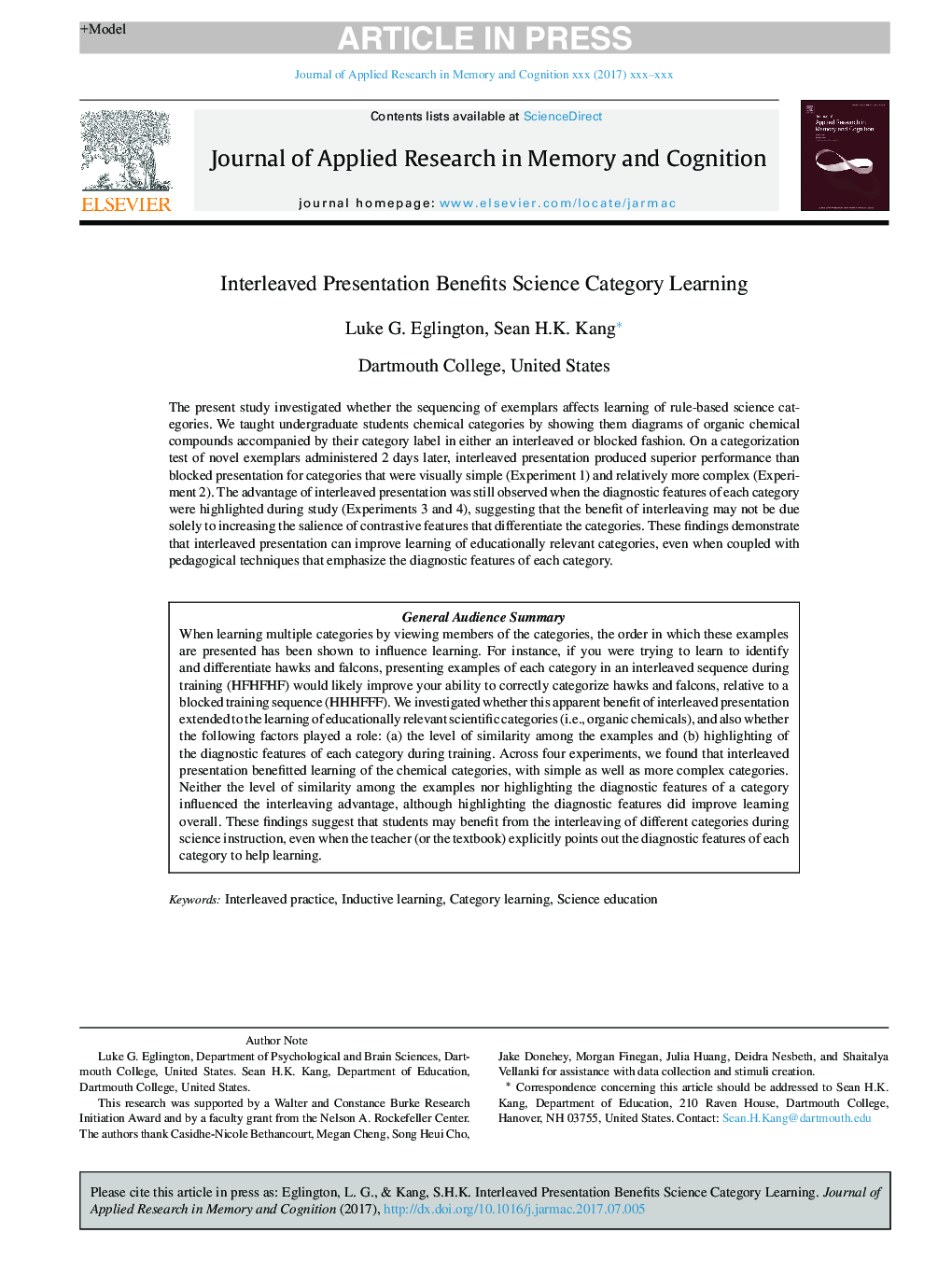| Article ID | Journal | Published Year | Pages | File Type |
|---|---|---|---|---|
| 7241825 | Journal of Applied Research in Memory and Cognition | 2017 | 11 Pages |
Abstract
The present study investigated whether the sequencing of exemplars affects learning of rule-based science categories. We taught undergraduate students chemical categories by showing them diagrams of organic chemical compounds accompanied by their category label in either an interleaved or blocked fashion. On a categorization test of novel exemplars administered 2 days later, interleaved presentation produced superior performance than blocked presentation for categories that were visually simple (Experiment 1) and relatively more complex (Experiment 2). The advantage of interleaved presentation was still observed when the diagnostic features of each category were highlighted during study (Experiments 3 and 4), suggesting that the benefit of interleaving may not be due solely to increasing the salience of contrastive features that differentiate the categories. These findings demonstrate that interleaved presentation can improve learning of educationally relevant categories, even when coupled with pedagogical techniques that emphasize the diagnostic features of each category.
Related Topics
Social Sciences and Humanities
Psychology
Applied Psychology
Authors
Luke G. Eglington, Sean H.K. Kang,
